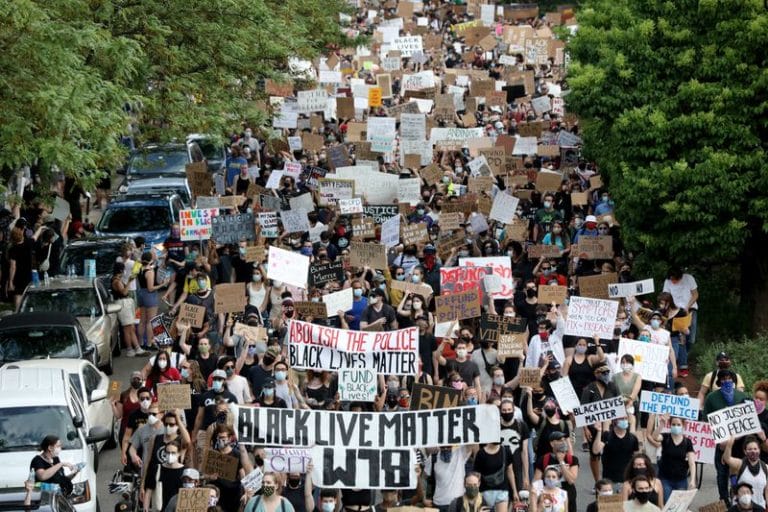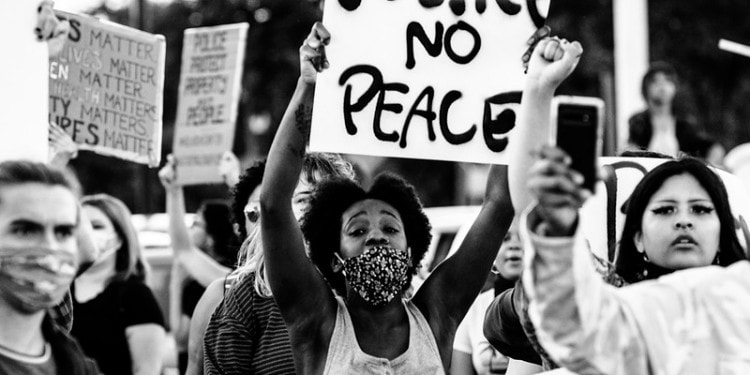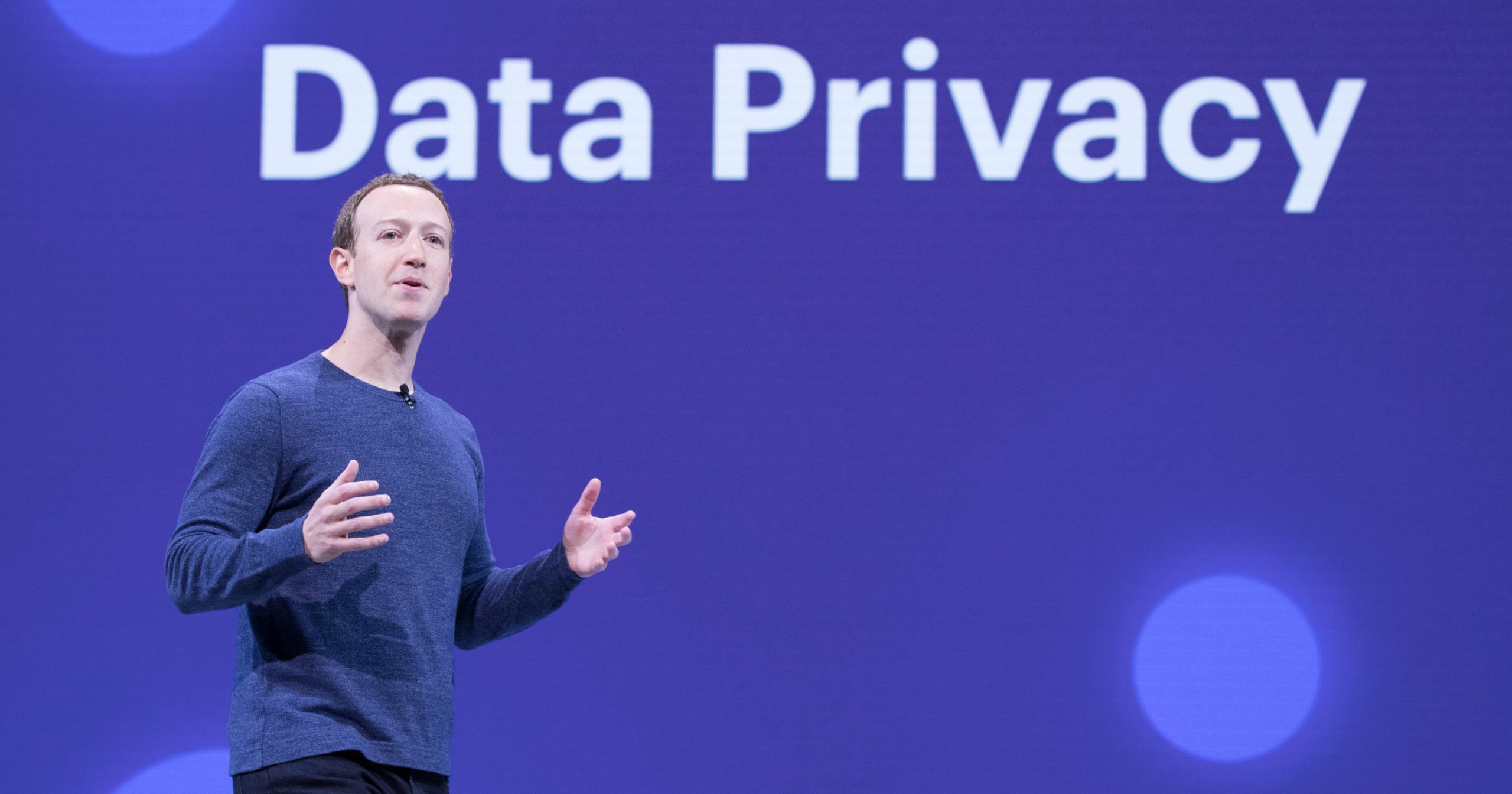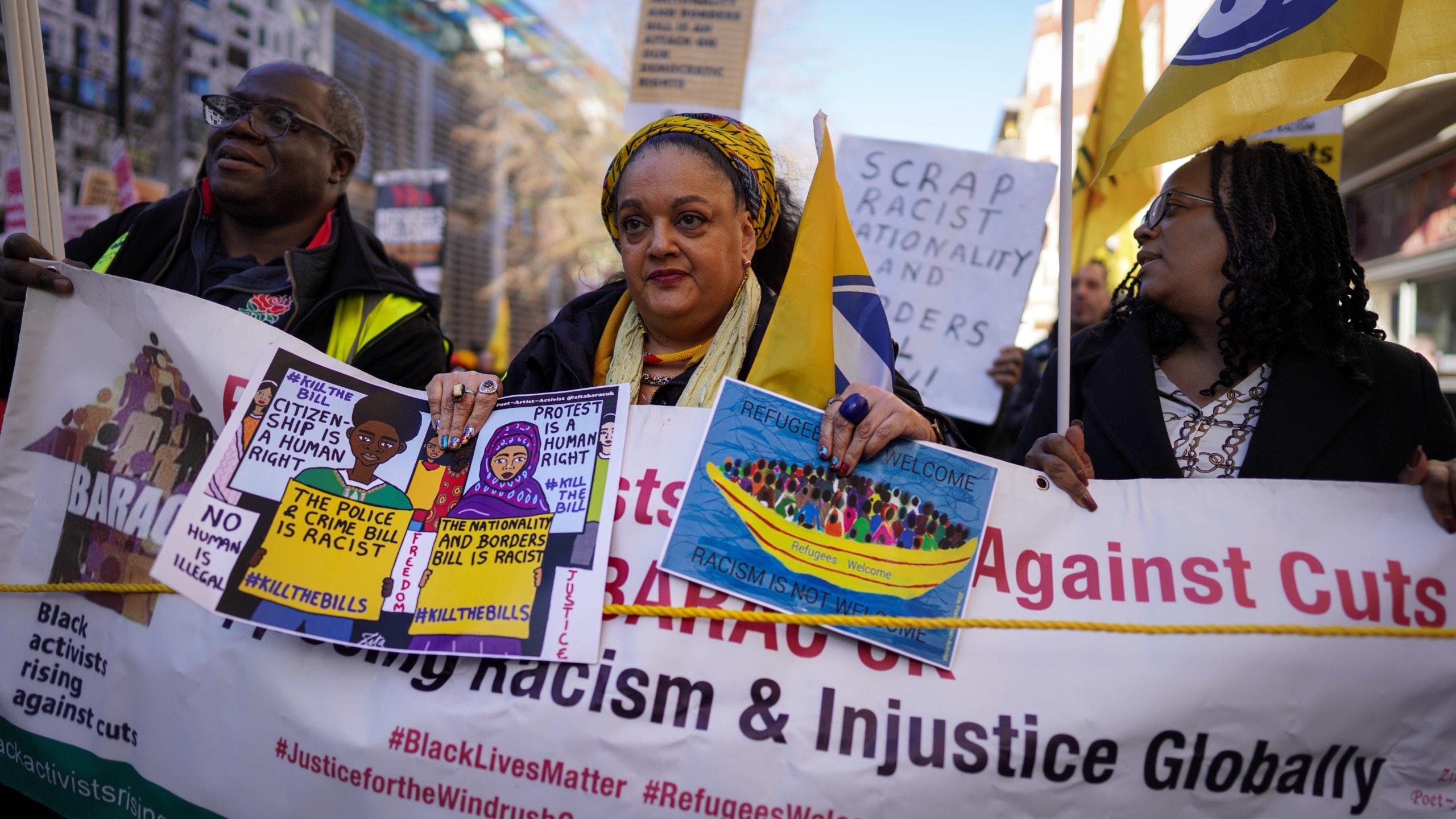Black Lives Matter (BLM) has been asking for societal reforms and change since 2013, but this summer was different. A video showing the treatment of George Floyd at the hand’s of the Minneapolis Police pushed people to their limits. This resulted in BLM protests taking place across the United States during a global pandemic.
While we often think of social movements as large, state, or nationwide campaigns, it can be much more useful to think about them from the local perspective. The Civil Rights Movement is a good example. We often think about the national policies that were a result of the movement, but we should remember the local instances too. For example, at the time of Martin Luther King, Jr.’s assassination, he was in Memphis, Tennesse, supporting a local Sanitation Department strike. Demanding change at the local level, as well as the state and national levels, has a long history in the U.S.
In this way, that BLM protests happening across the US, in cities large and small, is not that surprising. City governments, while often overlooked, are, in fact, the right level of government for making a meaningful change when it comes to police reforms. Cities are often overlooked because there are many forms of city government which makes it hard to generalize about how things get done in local politics.
For example, there are strong mayor systems where the mayor is the executive of the city. This is the case in many of our large cities (New York, Los Angeles, and Chicago), but some smaller cities also use this system (College Bend, IN for example).
In these cities, the elected mayor does what you think she/he does: propose the budget, hire and fire police/fire chiefs and department heads, and legislate via city ordinances along with city council members. This is usually a full-time position.
However, most cities have council-manager systems, where the mayor and council are elected, but these are not full-time jobs. Instead, the council and mayor hire a city manager. In these cities, the city manager does what most people think of as the mayor’s job. The city manager then tends to the budget and handles the hiring/firing duties. The elected mayor serves as the face of the city and together, the mayor and council propose and pass city ordinances.
The challenge with local politics is that there are variances on each of these systems as well. For example, Portland, Maine elects a full-time, paid mayor and has a full-time city manager as well. When the BLM chapter there protested for changes after the death of George Floyd, things got a little complicated. Residents began to ask, why do we pay two people to do this work? They also researched the origins of their local government system and found that racism was at the heart of it.
Relevant Articles: Black Women Matter | Five Resources to Fight Racism | How to Organize Political Success | Tackling Systemic Racism
On July 14, 2020, 72% of voters in Portland, Maine voted to form a charter review commission to determine if the city needed both a mayor and a city manager. This is a victory for BLM Portland, who had been demanding that the city abolish the city manager position.
Not all protests lead to immediate change and not all protests we saw this summer were under the banner of BLM. In Fairfield, California, a group called Fairfield Change held a series of protests asking to defund the police. Though they have no formal ties to BLM, a Fairfield city council member publicly linked their protest to BLM and the Black Panthers, which she later issued an apology for. Members of Fairfield Change spoke at the July 7th city council meeting and asked the city council member to resign, but the council member did not resign. This has not stopped the group—they are still attending city council meetings and asking for change.

In Oklahoma City, BLM held protests and one of their demands included a request for an independent police monitor. In response, the Mayor of Oklahoma City set up a Law Enforcement Task Force to address their concerns. Only time will tell if their demands are met and they are successful.
Across the country, even after the protests slowed down, people were still making demands for change from their local governments. We often hear that “all politics is local” and this summer we witnessed the truth in that statement. After the death of George Floyd, there were calls to defund the police, to reallocate police budgets, and to increase transparency in many cities.
We often hear that “all politics is local” and this summer we witnessed the truth in that statement. After the death of George Floyd, there were calls to defund the police, to reallocate police budgets, and to increase transparency in many cities.
In response to COVID-19, cities across the country shifted their meetings online, and with many of us already at home, we had time to tune in and sign up to speak. Speaking up at city council meetings is the right place to start, but there has to be a state and national plan as well.
With recent reports showing that the majority of the protests were peaceful and evidence that shows that participating in protests can influence elections, there are still more opportunities for change. Protesting at the local level can be an effective way of invoking meaningful change.
Editor’s Note: The opinions expressed here by Impakter.com columnists are their own, not those of Impakter.com
In the Featured Photo: BLM Protest in Oklahoma City. Photo Credit: Nathan Poppe















